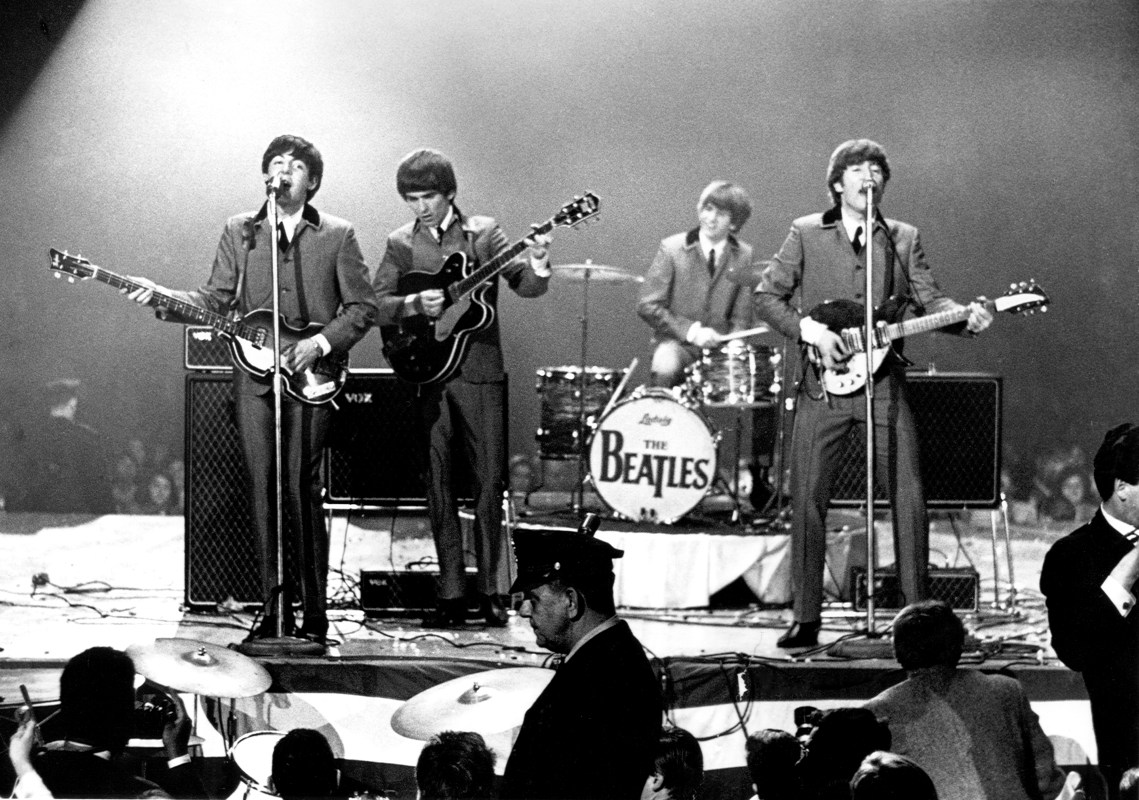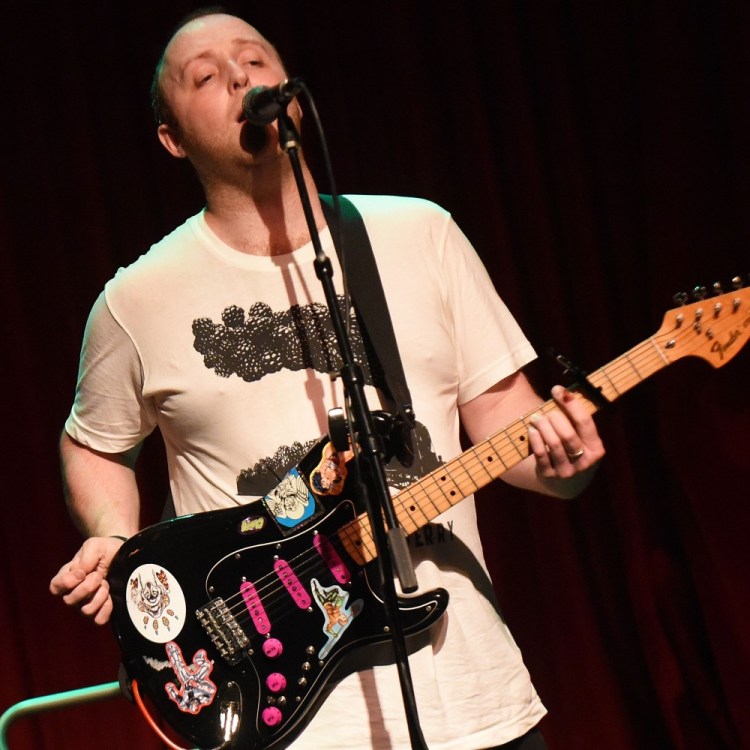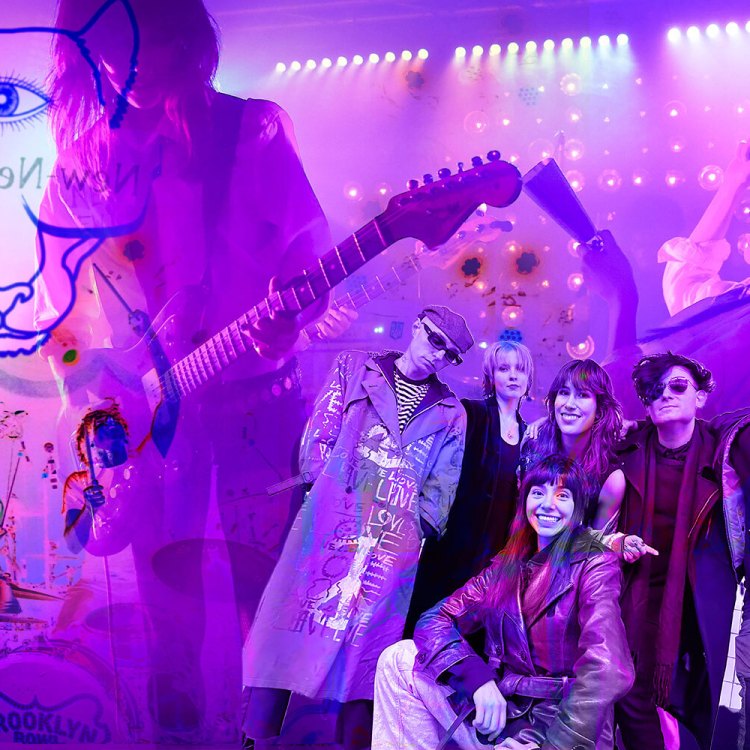Dear Beatles: You scalped us, you skinned us, you took away our land, our buffalo, our way of life. But, uh, thanks for The White Album.
The Beatles are on the wrong side of history, but we are too close to the blinding corona of their immense accomplishments and too swept away by their miraculous recordings to really grasp this. Like schoolchildren in 1958 studying Columbus, all we can see are the fantastic feats and the stirring myth, and not the cost.
Between 1540 and 1924, Caucasian men of European descent wiped North America virtually clean of its indigenous population. In doing so, they didn’t just commit murder in the name of God and manifest destiny; they also erased 10,000 years of language, spirituality, philosophy, science, and music. An entire arc of social and cultural evolution was expunged. We will never know what limbs could have grown from what had been destroyed.
Between 1964 and 1970, Caucasian men from Liverpool wiped North America virtually clean of its indigenous music. America became Beatle mad and recast the very idea of rock in the image of these invaders. The Beatles profoundly altered and largely erased a unique and gorgeous art form that had been evolving for centuries: The American Beat, which was the living legacy of America’s disenfranchised, America’s poor, and America’s willing and unwilling immigrants.
By the way, let me note that any chatter that the Beatles were overrated is an obscene canard. One may have issues with aspects of their creativity, technique, or methods, one may even point accusatory fingers at the melodies and techniques they ripped off from lesser known artists, and one can write reams of words about their miraculous luck; but one cannot argue with the extraordinary monument they created. Their genius and accomplishments remain adamantine. The idea that Beatles are overrated is totally irrelevant to the real discussion that needs to take place when the Beatles awesome legacy is discussed:
The Beatles destroyed American rock’n’roll.
I think it’s important to grasp how beautiful and diverse American Beat Music was before the Beatles pooped on its evolutionary course. Please take a moment to listen to Sid Hemphill, Bukka White, Amédé Ardoin, and Louis Armstrong and his Hot 5. We think of these artists and their recordings as archaic, but they are, in fact, part of a continuum; and this continuum leads us absolutely directly to Elvis, Eddie Cochran, The Olympics, Bo Diddley, Bob Dylan, the Beach Boys, Little Richard, the Sonics, etcetera. This was our school, our lineage before February 9, 1964. An extraordinary evolutionary trail winds its way from Congo Square in New Orleans to Lincoln Gardens in Chicago to Senatobia, Mississippi to Union Avenue in Memphis to Izzy Young’s Folklore Center in Greenwich Village, and man, everywhere in between.
This trail tells an amazing story: Sounds, sighs and stomps born in West Africa, Mayo or Connaught, Aberdeen, Bavaria, and the Pale of Settlement became the songs of America, the songs of plantations, coal mines and tenements. These were necessary songs that people sang to survive, necessary songs to accompany the rhythm of work, death, joy, and birth.
These necessary rhythms and melodies evolved into the American Beat Music of King Oliver and King Louis, Emmett Miller and Jimmie Rodgers, the Carter Family and Cléoma Breaux, and eighty-eight etceteras; and then, the same line of rhythm and melody evolved into the thumping, twanging, clanking and hissing songs we called rock’n’roll. It was a straight line, friends, this great cyclorama and palace of American music, only that palace was burned down on February 9, 1964.
What did the Beatles do that was so different, so radically oppositional to what Americans were doing before them?
In essence, the Beatles introduced a formalism, a Tin Pan Alley traditionalism into American pop (and I mean literally a formalism: the word is defined as “excessive adherence to prescribed forms”). For example, before the Beatles, almost no electric beat artist writes songs with bridges; after the Beatles, virtually everyone does. See, bridges didn’t exist in traditional American, African, and European aboriginal song forms (which, on some level, all had roots in ageless thumps and drones), so they didn’t get passed on to, oh, the Carter Family or Little Richard or Eddie Cochran.
In the United States prior to Beatleism, on one hand you had the aboriginal rock’n’roll created by the children of Basin Street, Beale Street, Congo Square, and Clarksdale; on the (very separate) other hand, you had the “crafted” Tin Pan Alley music of Jolson, Rogers and Hart, Ukulele Ike, Bing Crosby, Russ Columbo and many, many others. When the Beatles entered the American consciousness, they did something so giant that it is almost overlooked (and I believe this may be their most significant contribution to the culture): they cemented the relationship between electric beat music and traditional “well-crafted” Tin Pan Alley/Broadway/Vaudeville/Music Hall pop music, in essence creating pop-rock. The Beatles’ charm and ubiquity then ensured that the majority of rock songs – British and American – that would surface in the public eye in the next decade would be based in the “respectable” Tin Pan Alley-esque lyrical, structural, and melodic philosophy that the Beatles popularized. Here’s an interesting bit of evidence that the Beatles may have known exactly what they were doing: The first song the Beatles performed on their legendary Ed Sullivan Show debut was “All My Loving,” but the second song was “Till There Was You”, a fairly mawkish and hoary piece of pure Tin Pan Alley songcraft from the hit musical, The Music Man. In that one moment, not only did the Beatles renounce any link to the roar and grime of Hamburg, they also announced the revolution would be reactionary.
After February of 1964, Americans were not just seduced by the extraordinary charisma and musically “respectable” aspirations of the Beatles, but entirely subsumed and brainwashed by them. This had the effect of strangling the growing child that was the distinct and original form of American rock’n’roll. It wasn’t the Beatles fault, but what was lost because of them was incalculable.
(I would be remiss not to note that there were artists who resisted subsuming the American thread to the Beatle virus – this would include everyone from the Beach Boys to Dylan to the Doors and many others. But the vast majority of young electric ensembles who emerged after February 1964 couldn’t run faster from traditional American roots, yeah yeah yeah.)
Thanks to the Beatles invasive ubiquity and (well-meaning) cultural colonialism, we will never know what a pure American rock’n’roll evolved exclusively from gorgeous and unique American roots would have sounded like. We will never know what phenomenal joys would have resulted from the natural growth of the American child of Puget Sound raunch and Bakersfield twang, Appalachia sigh and Lafayette cry, Memphis tic-tock and Rush Street squeal, Rust Belt bamalam, Clarksdale poetics and Motor City three-chord dumbangelics. It is another lost vein in history.
This article was featured in the InsideHook newsletter. Sign up now.
























